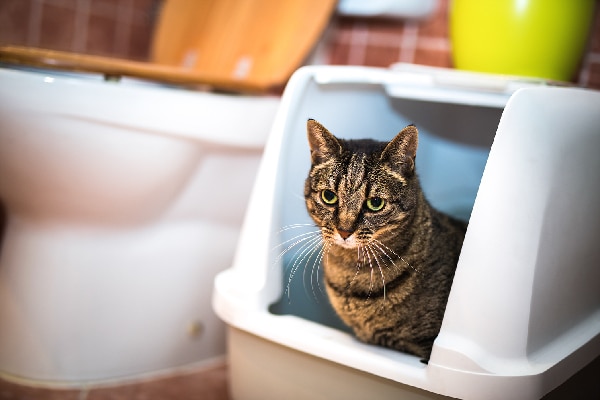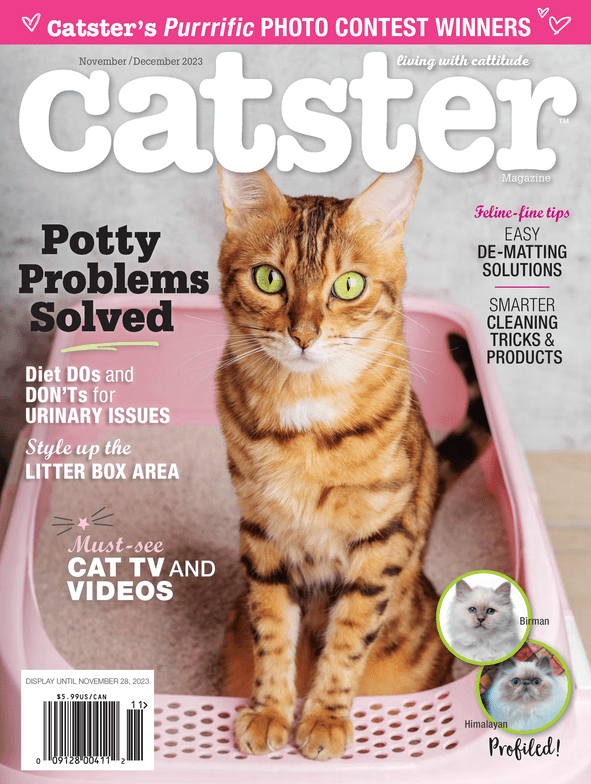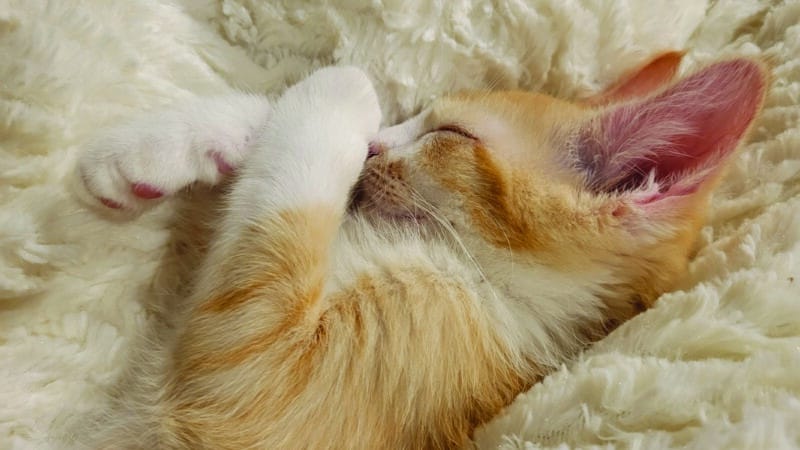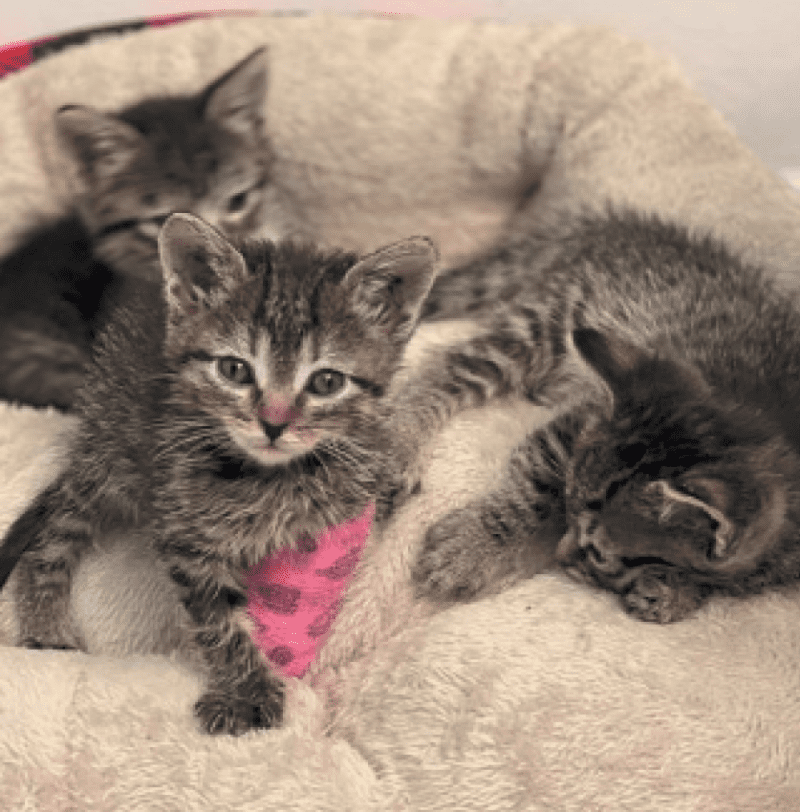It’s hard to imagine non-cat people believing that cat guardians take the time to inspect what they’re removing from dirty litter boxes. However, our cat’s poop holds many clues as to how his body is functioning. Checking that everything looks normal in the litter box can keep your kitty in tiptop shape. For example, blood in cat poop is a red flag. It’s a sliding scale from the feline’s response to a bit of stress to the onset of a potentially deadly condition.
So, what exactly does blood in cat poop look like, what are some of the causes of blood in cat poop and how do you treat blood in cat poop?
Identifying blood in cat poop
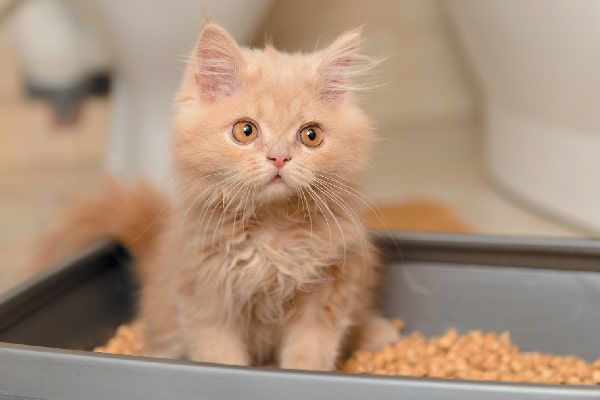
Normal cat poop is brown, cylindrical and firm. A change in diet or health can alter any of these factors. While many abnormal conditions will right themselves quickly, some conditions won’t. Blood in cat poop requires immediate attention.
First off, it’s important to remember that not all blood in cat poop looks the same. And usually it’s not a huge bloody stool that you’ll find. Blood in cat poop is often much more subtle — it appears as flecks. The degree and color of the mottling depends upon how much, and precisely where, the blood is coming from in the digestive system.
“Bright or light red comes from the lower intestinal tract,” says Dr. Justin Molnar, DVM and medical director at Shinnecock Animal Hospital. “Dark red or blackish colored blood comes from further up the intestinal tract and can signify a serious issue.”
What causes blood in cat poop?
Seeing light red to pinkish droplets of blood in the stool is most likely the sign of inflammation. “Inflammation of the GI tract is one of the most common causes of blood in cat poop and it’s usually not life or death, especially if the cat is acting normal,” says Dr. Molnar. “The inflammation can be caused by a range of manageable situations from parasites to eating something disagreeable.”
Colitis is the technical term for inflammation of the large intestines (colon). “Unfortunately, causes of GI issues don’t show up in blood work,” says Dr. Molnar. And sometimes the symptoms are successfully treated without ever fully knowing what caused the issues.
Major causes of GI inflammation include:
- Dietary issues (ingesting something foreign or food intolerance)
- Stress
- Parasites
- Infection (i.e. giardia or coccidia)
- Constipation
- The presence of dark or tarry blood in the stool points to an issue further up the digestive tract either in the stomach or small intestine. The variety of causes spans the gamut of treatable to life threatening.
Predominant causes of dark blood in cat poop:
- Kidney failure
- Infection
- Pneumonia
- Blood clots
- Poisoning
- Blockage (foreign object lodged in the digestive tract)
- Ulcers
- Trauma
What to do about blood in cat poop
For bright red or pinkish blood droplets, waiting a day can alleviate the issue. Colitis caused by stress can subside without intervention by removing the stressors. If the kitty has eaten something slightly disagreeable, it will usually pass quickly. Chicken broth, chicken-based baby food, or wet cat food can soften stools. However, if your cat is acting abnormal or sick, get him to the veterinarian right away. If he’s acting normal but he’s still got blood in his poop for more than 24 hours, get him medical attention. Dramatic weight loss also requires a medical exam.
If there are dark or tarry blood spots in the cat poop, that’s an immediate cause of alarm. Get to your vet ASAP. A battery of tests will most likely unearth the underlying issue. Your vet will determine which tests to run first — blood work, x-rays and sonograms should illuminate the issue. A seasoned veterinarian will be able to recommend which tests to run, and in which order, from the initial exam.
Don’t forget to take a stool sample to the vet’s office!
Treating blood in cat poop
As mentioned above, eliminating stress and a quick tweak in your cat’s diet can provide fast results when the blood in cat poop isn’t that serious. Your animal medical professional will provide the prescriptions required to tackle parasites and infections.
Unfortunately, tarry stools can mean inpatient treatments and ongoing care. In some instances, surgery will be needed, like for a blockage. The most critical factor you can control is how soon you get your kitty to the veterinarian once you notice blood in cat poop. Only your veterinarian can determine the best treatment for the range of illnesses causing this discovery.
Our cats rely on us to be their health advocates (in addition to being their cat beds, play toys and tasty treat providers!). Inspecting their litter box “gifts” is one of the surest ways to thwart any medical issues — like blood in cat poop — before they become irreversible.
Thumbnail: Photography © borchee | iStock / Getty Images Plus.
This post was originally published in 2018.
About the author
Denise LeBeau is a writer, editor and photographer with almost 20 years of experience of creating content for animal-related issues, endeavors and events. She worked at Best Friends Animal Society for 12 years where she had two columns in the Best Friends Magazine, and held multiple content creation roles including web managing editor and outreach campaign editor. Denise has been an ongoing contributor to Catster since 2014, writing for the magazine and website. The self-professed poet laureate of the pet set is currently the manager of development for an animal welfare agency, where she works with a team to create content across media platforms. She lives in Hampton Bays with her two rescue Siamese mixes – Flipper and Slayer, and her LBD (little brown dog), Zephyrella.

